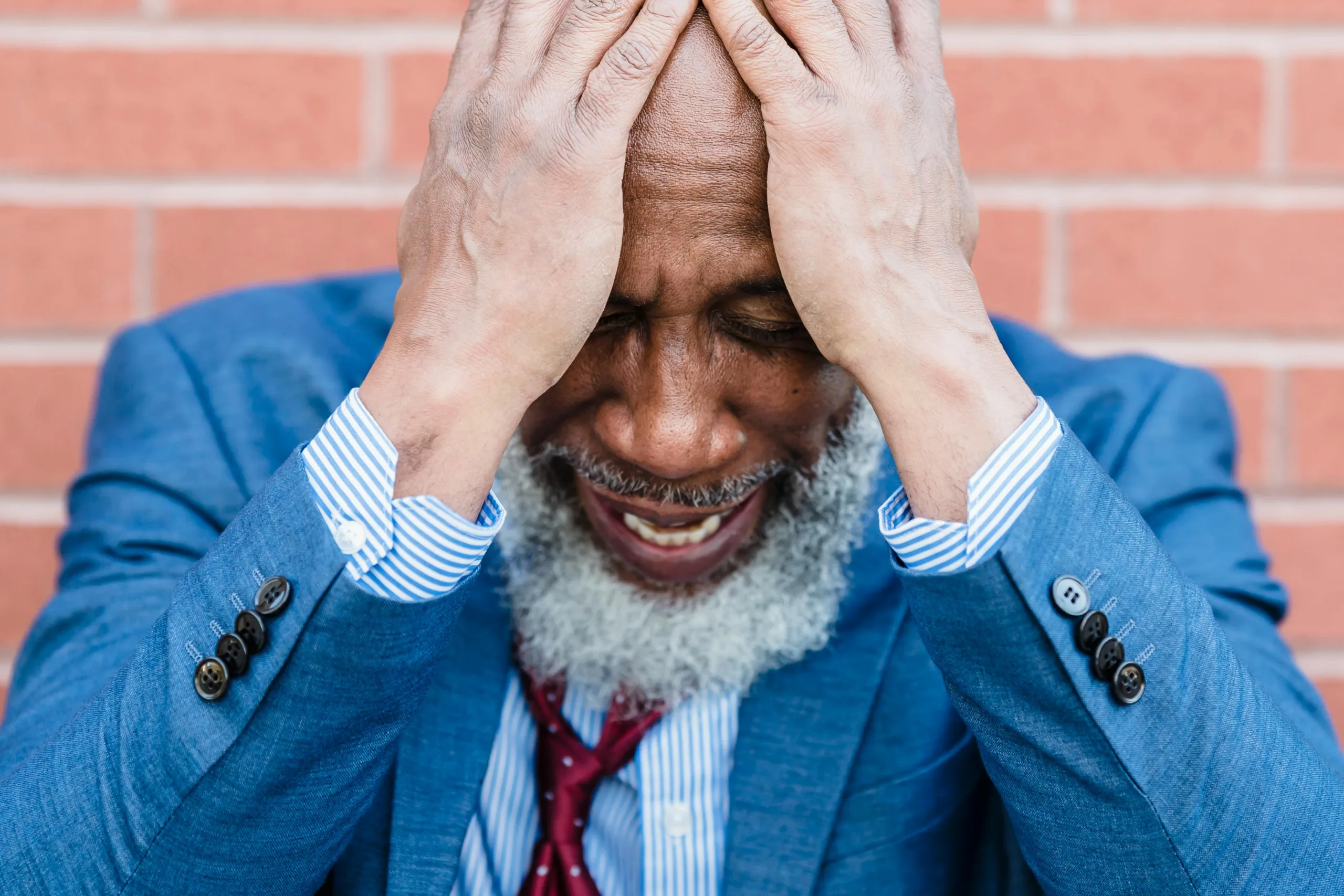In contemporary society, discussions surrounding mental health have gained significant traction, yet certain facets of this discourse remain conspicuously absent. Despite growing awareness and advocacy efforts, the realm of men’s mental health often remains veiled in silence and stigma. “Beneath the Surface: Exploring the Quiet Battles of Men’s Mental Health” delves into this intricate landscape, aiming to unveil the nuanced struggles faced by men in navigating their mental well-being.
While mental health issues affect individuals of all genders, prevailing societal norms and gender stereotypes often impede men from seeking help or even acknowledging their psychological distress. The pervasive expectation of stoicism and emotional restraint places undue pressure on men to conceal their vulnerabilities, leading to a culture of silence around their mental health concerns. Consequently, men may find themselves grappling with internal turmoil, yet feel constrained by societal expectations to suffer in silence.
Men’s mental health is a concern that is often overlooked. Many men are discreetly battling with various mental health issues beneath their masculine appearances. The stigma surrounding men’s mental health is a toxic relic of traditional gender roles, perpetuating a culture of silence and shame. Men have been socialized to be strong, stoic, and unemotional, which is leading them to endure psychological and emotional pain in silence, which normally results in committing suicide or most of them ending up alcoholics.

Considering the harmful effects of masculinity on men’s mental health, it is time to shatter the silence and challenge the status quo. We need to create a world where men feel comfortable expressing emotions, seeking help, and prioritizing their mental well-being. By breaking down the barriers to men’s mental health, we can save lives, strengthen relationships, and build a more compassionate society for all. In this article, I’ll explore the silent struggles of men’s mental health, the harmful impact of traditional masculinity, and the ways we can work together to create a more supportive and inclusive environment for men to thrive for the benefit of the wider community.
The Harmful Impact of Traditional Masculinity
Traditional masculinity is a toxic ideology that perpetuates harmful stereotypes and expectations of being a man, such as limited emotional expression, aggression, dominance, strength and stoicism, and provider and protector roles. Men are socialized to be tough, dominant, and unemotional, on the other hand, showing negative emotions, vulnerability, and weakness is seen as feminine and shameful. This narrow definition of masculinity suffocates men, forcing them to hide their true selves and suffer in silence.
Research has shown that traditional masculinity is linked to mental health problems such as depression, anxiety, substance abuse, risk of suicide or self-harm and stress. Traditional masculine norms emphasize on strength and dominance, which contributes to a culture of violence and gender-based violence, objectification of women as sexual objects and restrictive gender roles. By challenging traditional masculinity and promoting a more inclusive and expansive definition of manhood, we can help men break free from these societal expectations and embrace their full humanity.
Barriers to Men’s Mental Health
There are a myriad of factors which act as barriers to men’s mental health, as shown below:
Fear of vulnerability and emotional expression
Men are often socialized to avoid vulnerability and emotional expression, for example, in an African patriarchal community, a man should not be seen crying, as these traits are considered as a sign of weakness. This can make it difficult for men to open about their struggles, share their emotions, and seek help when needed. The fear of being seen as vulnerable can lead men to hide their negative feelings and struggles and put on a mask of strength and stoicism despite the hardships. This fear of vulnerability and emotional expression can be deeply ingrained in men’s psyche, making it a significant barrier to seeking help and prioritizing mental health.

Cultural and societal expectations of strength and resilience:
Culturally, men are often expected to be strong, resilient, stoic, and to handle challenges and difficulties on their own. This can consequently create a culture of silence and isolation, where men feel like they can’t express their struggles or seek help without being seen as weak or vulnerable. These expectations are deeply ingrained in our culture and society and can be perpetuated by media representations of men as strong and stoic. Social norms, peer pressure, family, cultural traditions, and religious or spiritual beliefs also contribute to the toxic masculinity of men. These expectations can lead men to feel ashamed or embarrassed about their struggles and to feel like they’re failing or inadequate if they’re not meeting expectations.
Trauma and adverse childhood experiences
Men who have experienced trauma or adverse childhood experiences (ACEs) such as physical or sexual abuse, emotional neglect, parental substance abuse or mental health illness, family violence, bullying or other traumatic events may struggle with mental health issues.
Strategies for Improving Men’s Mental Health
To address the barriers to men’s mental health, we need to take a multifaceted approach that involves individuals, communities, government and non-governmental agencies. Here are some strategies that can help:
Encourage Open Conversations: It is crucial to create safe and non-judgmental spaces where men feel comfortable opening about their struggles and emotions. This can help them to break down the stigma around mental health, build trust and connections with others, identify and address underlying issues, develop emotional intelligence and awareness, and foster a sense of community and belonging.
Challenge Traditional Masculinity: There is an urgent need to promote a more inclusive and expansive definition of masculinity that allows men to express themselves freely. This can be achieved through promoting emotional expression of vulnerability, encouraging empathy and emotional intelligence, fostering healthy relationships and communication and supporting gender equality. Challenging patriarchal norms and encouraging diverse and inclusive representations of masculinity must also be taken into consideration.
Provide friendly and accessible mental health services: There is need to ensure that mental health resources and support services are accessible and tailored to men’s needs. This helps to raise awareness about mental health issues, encourage help-seeking and support, and develop coping skills and resilience. This can be done through workshops and seminars, mental health first aid training, school and university programs and community outreach and events.
Foster Healthy Relationships: Men should be encouraged to build strong, supportive relationships with family, friends, and community. Social connections and supportive relationships can provide emotional support and validation, encourage open communication, help to build resilience and coping skills, offer practical support and resources and promote a sense of belonging and community. Men can foster positive relationships through building strong family bonds, nurturing friendships and social connections, participating in sports and community activities, and prioritizing quality time with family and loved ones.
Promote Self-Care: Men should prioritize self-care and engage in healthy coping mechanisms like physical exercise, mindfulness, hobbies and creative pursuits, spending time in nature, reading and learning, prioritizing sleep and rest and relaxation techniques. All this can help to reduce stress and anxiety, improve mood and overall, well-being, enhance resilience and coping skills, promote relaxation and calmness and support physical health and well being
Support Policy Change: There is need to advocate for policies and programs that support men’s mental health and well-being. Government policies must challenge the traditional expression of masculinity, which is typical in most patriarchal societies. The policies must prioritize men’s mental health through provision of mental health services tailor made for men.
By implementing these strategies, we can break down the barriers to men’s mental health and create a more supportive and inclusive environment for men to thrive.
A Call to Action
Men’s mental health is a critical issue that requires everyone’s attention and action. By understanding the barriers that prevent men from seeking help and prioritizing their mental well-being, we can work to create a more supportive and inclusive environment for men to thrive. It’s time to challenge traditional masculinity and promote a more expansive and inclusive definition of what it means to be a man. It’s time to encourage men to prioritize their mental health and seek help when needed, while creating safe spaces for men to open up and share their struggles. We all have a role to play in breaking down the barriers to men’s mental health.
Whether you’re a mental health professional, a community leader, or a traditional or religious leader, you can make a difference. So, let’s act today. Let’s start conversations, challenge norms, and create change, the change we want. Let’s work together to build a world where men can prioritize their mental health without fear or shame. Together, we can break down the barriers and create a brighter future for men’s mental health for the benefit of the wider community and the world at large.
Take away Wisdom
Moving forward, it is imperative that efforts to address men’s mental health struggles continue to evolve and expand. This includes ongoing research to deepen our understanding of the complexities surrounding men’s mental health, as well as the development of innovative interventions and initiatives aimed at promoting men’s emotional well-being. Additionally, collaboration between policymakers, mental health professionals, advocacy groups, and community organizations is essential to effecting systemic change and creating environments that support the mental health of all individuals, regardless of gender.
In essence, “Beneath the Surface: Exploring the Quiet Battles of Men’s Mental Health” serves as a call to action to confront the silence and stigma surrounding men’s mental health and to foster a culture of openness, compassion, and support. By amplifying the voices of men and challenging entrenched gender norms, we can create a more inclusive and equitable society where everyone could thrive mentally, emotionally, and psychologically.
Written By
Francisca Magwaza
Counseling Psychologist Intern



Leave a Reply